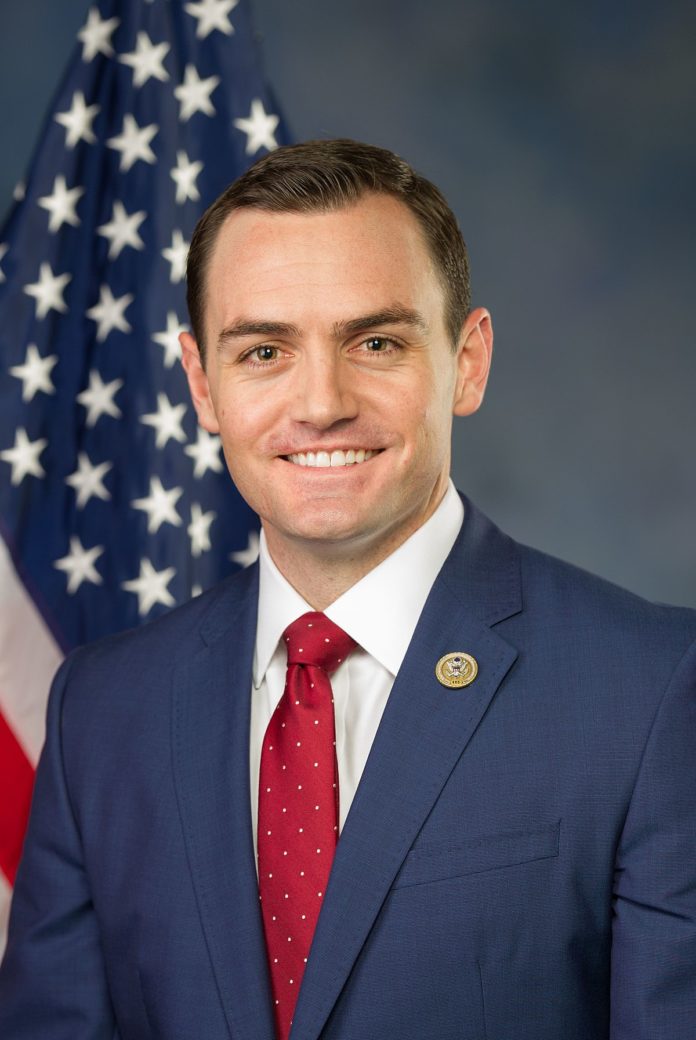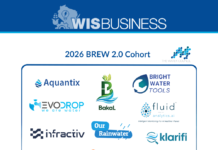— U.S. Rep. Mike Gallagher said a new bill he is pushing will not only revitalize industries, but transform them.
The bipartisan bill, co-sponsored by the Green Bay Republican, calls for $100 billion to build resources in advancing science and technology research and development nationwide.
It also proposes expansion of the National Science Foundation and $10 billion for regional technology hubs. Those hubs would help to launch companies, revive U.S. manufacturing and create jobs that jump-start communities.
“It’s also a matter of building off of our fundamental strengths as a state,” he told viewers of a virtual event. “We talk about the Wisconsin Idea… I think we need to think hard about how we revitalize and modernize the Wisconsin Idea, and so the Endless Frontier Act would be one part of that. We really have an opportunity right now… Wisconsin could position itself, if we got our act together, to be a destination of choice for a lot of top-level talent.”
Gallagher and U.S. Rep. Ro Khanna, D-Calif., the legislation’s major co-sponsors, headlined part two of the “Shaping the Endless Frontier” series hosted by the Wisconsin Alumni Research Foundation, UW-Milwaukee, Wisconsin Technology Council and Michael Best Strategies.
Khanna’s district is in the heart of Silicon Valley, yet he views the Endless Frontier Act as a benefit for the nation and the Midwest.
“The reality is that currently we have 12 million manufacturing jobs in this country. We have about 12 million tech jobs. They’re expected to grow to 25 million by 2025. And yet you’ve had basically 90 percent of the venture capital go to California, New York and Massachusetts,” he said.
He noted that if advanced manufacturing only existed in a few states, it would eliminate a broad middle class.
“I think that part of the backlash to technology and the sense that there is this elitism is because people don’t have a fair stake in the 21st century economy,” he said. “A focus on (Endless Frontier Act) is a win-win and critical in helping putting this country together.”
Event moderator Tom Still, president of the Tech Council, voiced a concern from Wisconsin Center for Manufacturing & Productivity CEO Buckley Brinkman — to be sure that manufacturing is not overlooked in the bill, that the dollars will come home and turn into jobs for people that need them.
Khanna responded that the U.S. needs advanced manufacturing for national security and jobs for those who don’t go to college, but he said he views technology investment as complementary to manufacturing investment.
“The more we can lead in advanced manufacturing in different sectors and integrate technology to be able to customize products, to be able to do the last mile assembly, to be able to do the type of precision manufacturing that other countries can’t,” he said.
Gallagher added the bill would require the Department of Commerce to coordinate manufacturing extension partnerships when designation regional technology hubs in order to keep different perspectives in mind. He also said that in Wisconsin, the dollars invested in UW-Madison, for example, would be seen also by the smaller universities, such as UW-Green Bay.
That federal funding is “a dream” to Wisconsin’s university researchers, who rely on public funding through the National Science Foundation, for example, a beneficiary of the Endless Frontier Act.
Melissa Skala, investigator at the Morgridge Institute for Research and professor of biomedical engineering at UW-Madison, has her lab focused on developing personalized treatment plans for cancer patients. Oftentimes, the risk of investment in her “long game” research is too great for private investors. High-risk — but high-discovery — research tends to rely on public funding.
“Public funding for university research… is one of the few ways we can do this high-risk research,” she said, comparing federal funded research to a mine and the company to a mill.
“A mill won’t last long if there is no mine, but a mill is required to get the products to the market,” Skala said. “What I find so powerful about the Endless Frontier Act is that it supports both the mine and the mill to benefit innovation across the spectrum.”
UW-Milwaukee Chancellor Mark Mone said university investments are where a majority of research and development is taking place, rather than within the industry. He added that top research universities that know partnerships, such as the proposed bill, would help research institutions thrive.
“What makes Madison and Milwaukee such research powerhouses is how industry wants to come and work with us whether it’s around biotech or a number of other things,” Mone said.
While the bill comes with a more than $100 billion price tag, Gallagher assured viewers that it’s “not as astronomical as it seems,” and that returns over time will dwarf the initial investment.
“My worry is that the world in which we don’t lead in these key technicolical areas is a world in which we’re going to have to waste a lot of money struggling, perhaps futilely, to catch up when it’s too late,” he said. “I do think we can and should make this investment.”
The Endless Frontier Act has been introduced in the House and is currently being looked at by the House Committee on Science, Space and Technology. Gallagher said it’s in a similar process in the Senate. He’s currently working on getting more cosponsors.
“I think this is the dream,” Skala said. “When we all get into science, we just hope we can do something that can make the place better. This is one of the key pieces we need to keep going.”
Watch a recording of the event: https://youtu.be/zVKZNoEmo84
Watch Part 1 of the webinar series: https://youtu.be/RHVMVeGZMWM
-By Stephanie Hoff
WisBusiness.com







